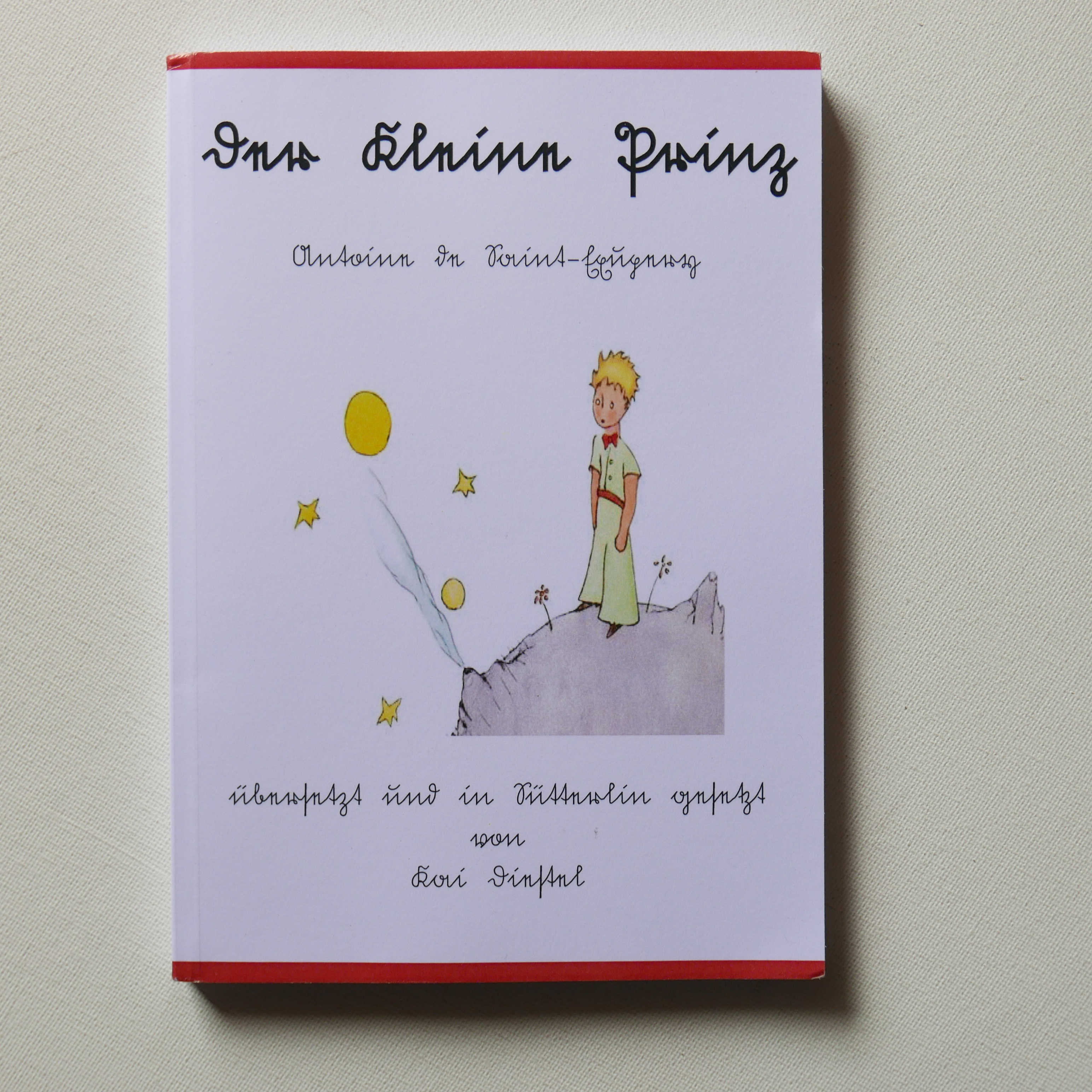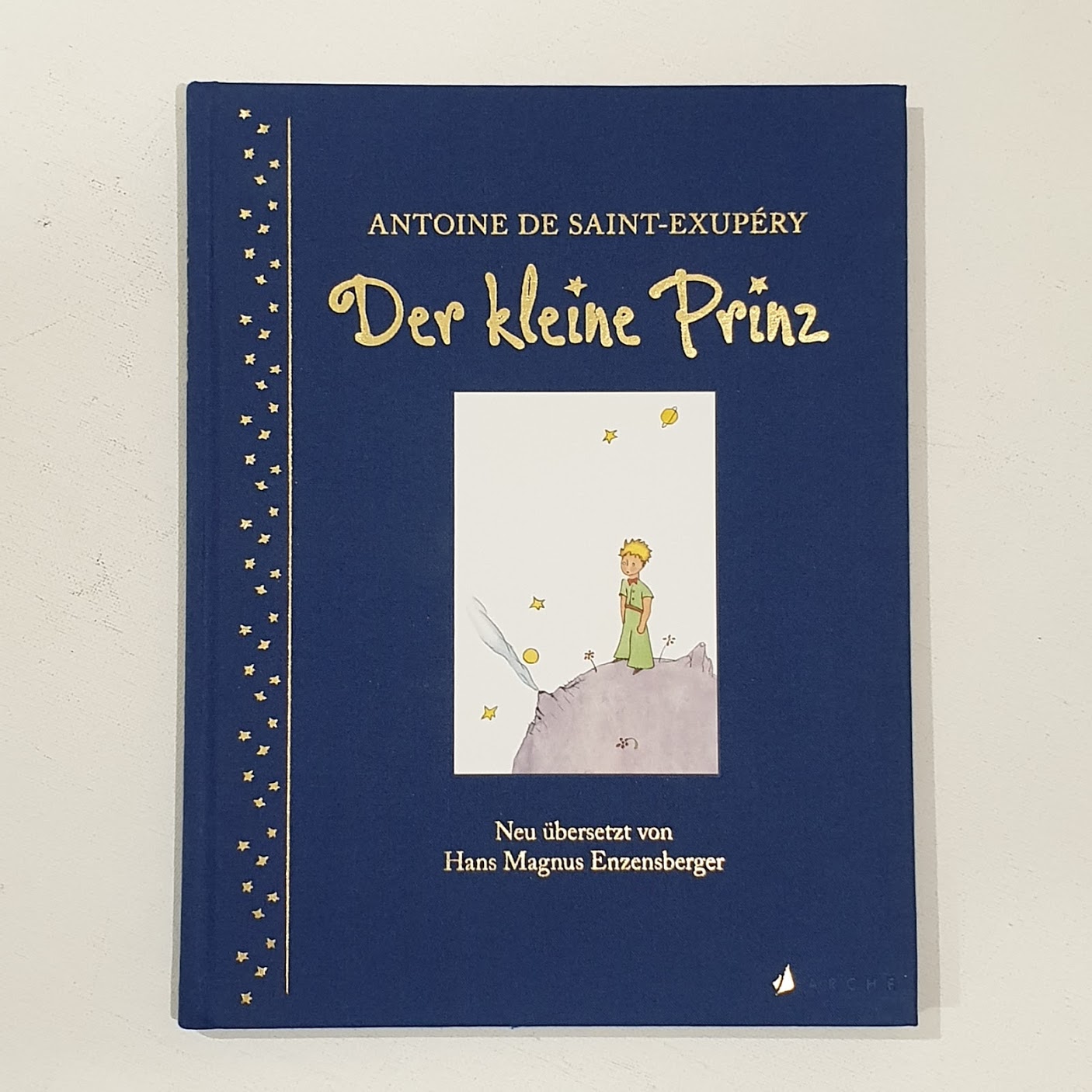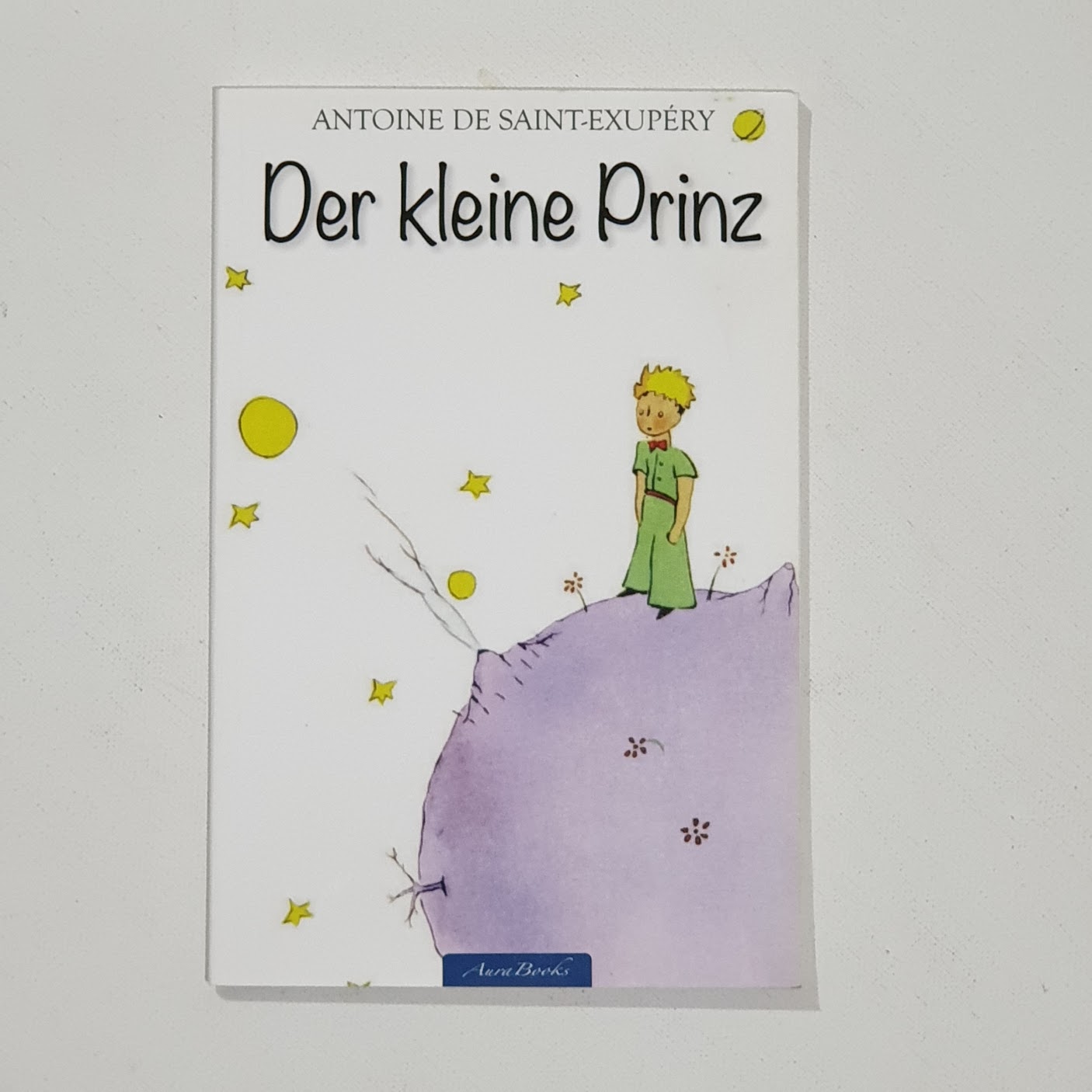
Der Kleine Prinz — in standard German.
Standard High German, or simply German, is a West Germanic language primarily spoken in Germany, Austria, Switzerland, Liechtenstein, and parts of Belgium and Luxembourg. It is one of the world’s major languages, spoken by approximately 100 million native speakers and millions of non-native speakers globally. German holds significant linguistic, cultural, and historical importance, with a profound influence on European and global languages.
Compared to English, German has a little more complex grammar, including three genders (masculine, feminine, neuter), four cases for nouns and pronouns (nominative, accusative, dative, genitive), and strong and weak verb conjugations. It also features a relatively flexible word order, though typically following a subject-verb-object structure.

German vocabulary derives primarily from the Germanic branch of the Indo-European language family, though it has absorbed many loanwords from Latin, Greek, French, and, more recently, English. The language is notable for its compound nouns, which can create lengthy words that describe very specific concepts or objects.
German phonology features a range of vowels and consonants, including distinctive umlauts (ä, ö, ü) and the sharp s (ß). The language’s stress pattern is typically on the first syllable of the word, except in loanwords.

German literature is among the world’s richest, with contributions from writers such as Johann Wolfgang von Goethe, Friedrich Schiller, Franz Kafka, and Thomas Mann. The Brothers Grimm’s fairy tales have had a lasting global impact, and the Nibelungenlied is a cornerstone of Germanic epic poetry. Germany is the birthplace of numerous influential philosophers, including Immanuel Kant, Friedrich Nietzsche, and Karl Marx, whose works have shaped Western thought and philosophy. German-speaking composers like Johann Sebastian Bach, Ludwig van Beethoven, and Wolfgang Amadeus Mozart have played pivotal roles in the development of Western classical music.

The German language evolved from Old High German (spoken from the 6th to 11th centuries) through Middle High German (around the 12th to 16th centuries) to Early New High German and then to its present form. The standardization of German was significantly influenced by Martin Luther’s translation of the Bible in the 16th century, which helped unify the various German dialects.

Throughout history, the German language has been central to political, intellectual, and cultural movements in Europe, including the Reformation and the Enlightenment. In the 19th and 20th centuries, the spread of German influence through the Austro-Hungarian Empire, and later the political events of the World Wars, had significant linguistic and cultural repercussions.
Influence on Europe and Global Languages

German remains an important language in international diplomacy, business, and academia. It is one of the European Union’s three working languages (alongside English and French) and is taught and studied worldwide as a foreign language.



